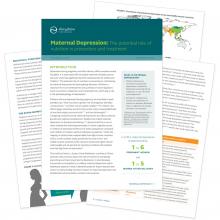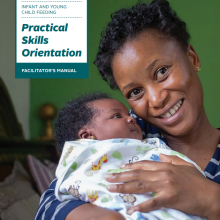Journal article
Feb 11 2020

Maternal nutrition intervention and maternal complications in 4 districts of Bangladesh: A nested cross-sectional study (Todd CS., 2019. PubMed)
The provision of intensive counseling and micronutrient supplements led to lower overall complications among recently delivered women in Bangladesh, according to this study.
Journal article
Feb 11 2020

Information Diffusion and Social Norms Are Associated with Infant and Young Child Feeding Practices in Bangladesh (Nguyen, P., 2019. The Journal of Nutrition)
Interaction within mothers’ social networks, reinforced by promoting positive social norms for appropriate behaviors, can affect IYCF practices, according to this study in Bangladesh.
Journal article
Feb 11 2020

Suboptimal infant and young child feeding practices in rural Boucle du Mouhoun, Burkina Faso: Findings from a cross-sectional population-based survey (Sarrasat S., 2019. PLOS One)
Mothers in the rural Boucle de Mouhoun Region of Burkina Faso had low levels of knowledge of IYCF and practices, according to this study: 60% of children had the minimum meal frequency, while only 18% benefited from the minimum dietary diversity and 13% received minimum acceptable diet.
Brief
Feb 11 2020

Maternal Depression: The potential role of nutrition in prevention and treatment
Guide/Manual
Jan 08 2020

IYCF Practical Skills Orientation - Facilitators' Manual
The IYCF Practical Skills Orientation Facilitators' Manual is suitable for health staff including birth attendants, ANC providers, facility In-Charges and service providers who are in contact with pregnant women, mothers in delivery rooms and their newborn infants, mothers of children 0-6 months
Journal article
Aug 01 2019

Does health worker performance affect clients’ health behaviors? A multilevel analysis from Bangladesh (Epstein, A., 2019. BMC Health Services Research)
In this study, reseearchers found evidence for an association between health worker compliance and client health behaviors; however, small effect sizes suggest that behavior change is multifactorial and affected by factors beyond care quality.

